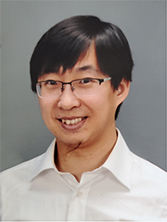Seminars
Dr. Jiahao Cheng
Manufacturing Science Division
Oak Ridge National Laboratory
A Computational Framework for Crystal Plasticity-based Fatigue Analysis in Metallic Materials

ABSTRACT: Material failure under cyclic loading is a dominant service-life restricting mechanism for engineering components and structures in many applications such as those in the aerospace, automotive and energy industries. For metallic materials, the repeated loading-unloading cycles lead to the redistribution of stress inside the microstructure, and cause stress concentration at (1) the hardening phases, (2) vicinity of porosities and (3) the high misorientation grain boundaries. The deformation and stress concentration accumulated at those locations results in micro-cracks formation, which further propagates and causes the complete failure of the structure. Many research efforts have focused on increasing the component service life through improving the materials’ microstructure, e.g., using laser or ultrasonic-based surface modification to postpone crack initiation from the surface or using electron beam melting-based additive manufacturing (EBM-AM) to directly design and print location-specific composite microstructures. In this presentation, we introduce a computational framework that is under development, which contains high-fidelity predictive models that capture the microstructure-fatigue properties relationship and has the versatility to be applied to complex conditions. The framework is based on a strain gradient crystal plasticity finite element model, which explicitly simulates the evolution of plastic deformation, stress redistribution and crack formation in the polycrystalline microstructure during cyclic loading. A unique cycle-jump-based acceleration algorithm is developed to increase the simulation efficiency for simulating high cycle fatigue within a reasonable computational time. We demonstrate the model by conducting microstructure-fatigue relation case studies for nickel-based superalloy (Haynes 282) and aluminum alloy (A380) and compare to experimental results for validation.
BIOGRAPHY: Jiahao Cheng is an R&D associate staff in the Deposition Science & Technology Group in the Manufacturing Science Division. He received his Ph.D. from Johns Hopkins University in 2016 in computational mechanics. His research mainly focuses on developing material constitutive models and finite element simulations for the deformation and failure behavior in metallic materials at the meso- and microstructure scale. Some of his past and current research work includes modeling ductility and fracture, twinning, fatigue, and creep in various material systems, such as magnesium alloys, titanium alloys, nickel-based superalloys, aluminum alloys, and composites.